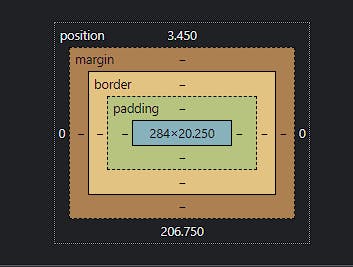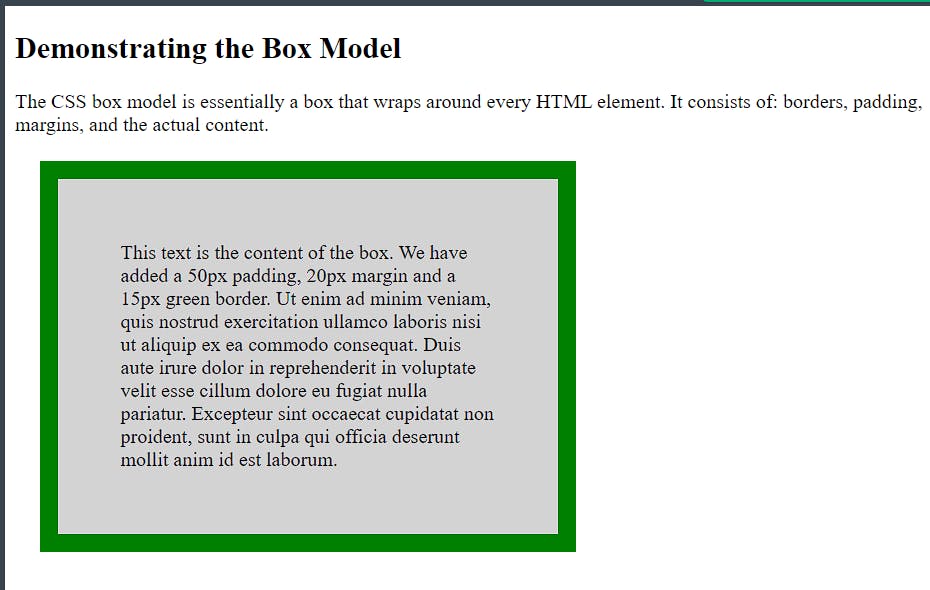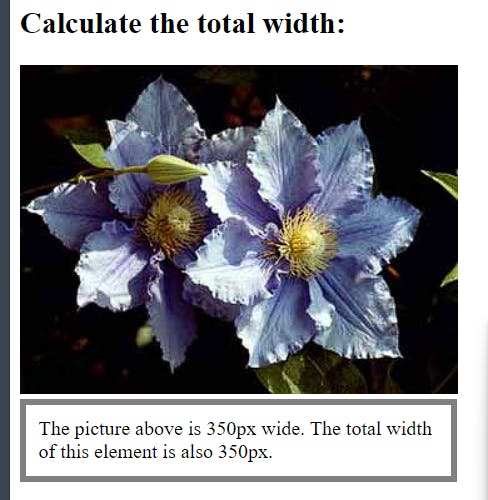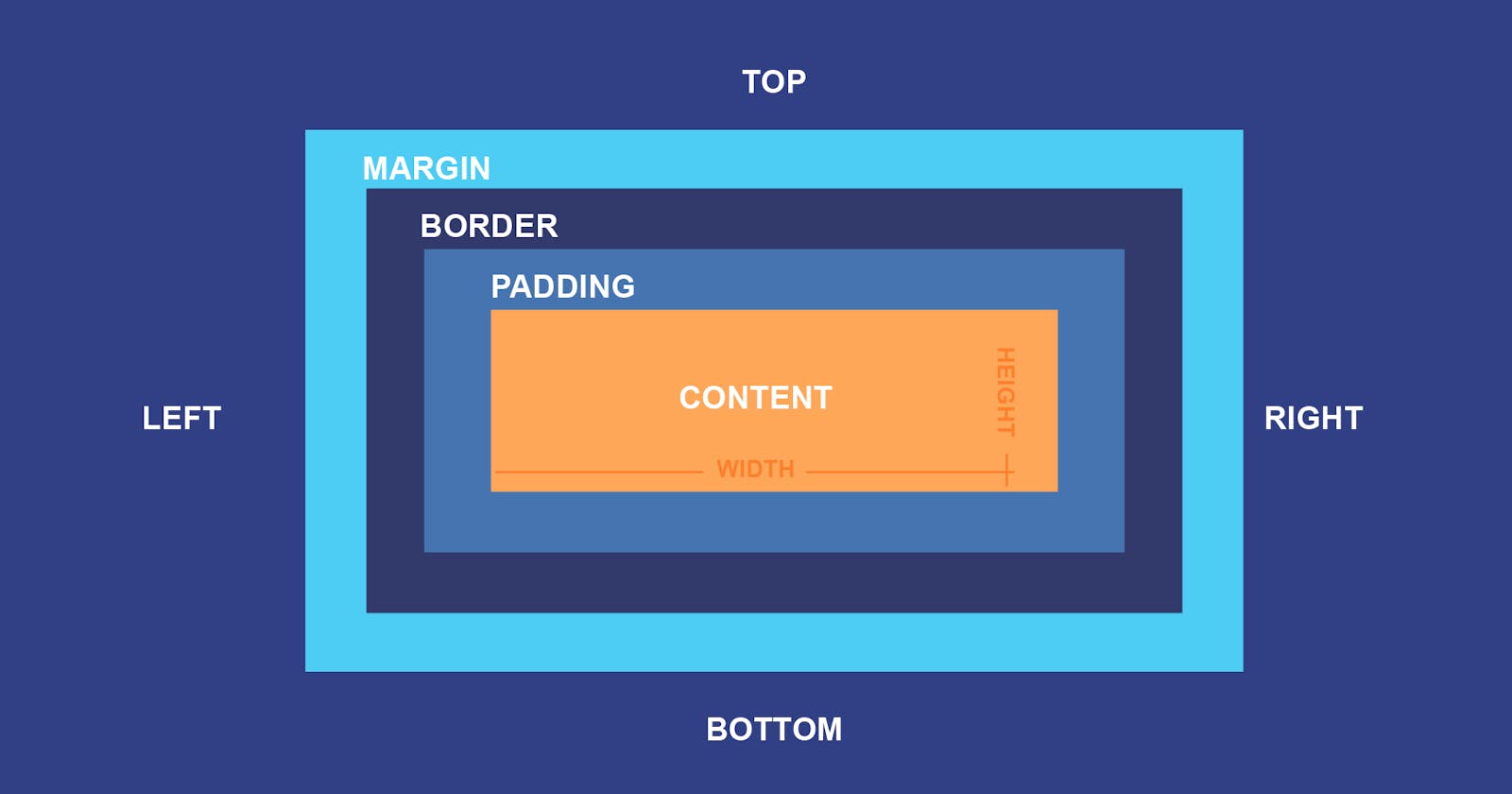Table of contents
All HTML elements can be considered as boxes.
The CSS Box Model
In CSS, the term "box model" is used when talking about design and layout.
The CSS box model is essentially a box that wraps around every HTML element. It consists of: margins, borders, padding, and the actual content. The image below illustrates the box model:

Explanation of the different parts:
Content - The content of the box, where text and images appear
Padding - Clears an area around the content. The padding is transparent
Border - A border that goes around the padding and content
Margin - Clears an area outside the border. The margin is transparent
The box model allows us to add a border around elements, and to define space between elements.
div {
width: 300px;
border: 15px solid green;
padding: 50px;
margin: 20px;
}
output :-

Width and Height of an Element
In order to set the width and height of an element correctly in all browsers, you need to know how the box model works.
div {
width: 320px;
padding: 10px;
border: 5px solid gray;
margin: 0;
}
output :-

Here is the calculation:
320px (width)
+ 20px (left + right padding)
+ 10px (left + right border)
+ 0px (left + right margin)
\= 350px
The total width of an element should be calculated like this:
Total element width = width + left padding + right padding + left border + right border + left margin + right margin
The total height of an element should be calculated like this:
Total element height = height + top padding + bottom padding + top border + bottom border + top margin + bottom margin
For more info follow this link : https://www.w3schools.com/css/css_boxmodel.asp

